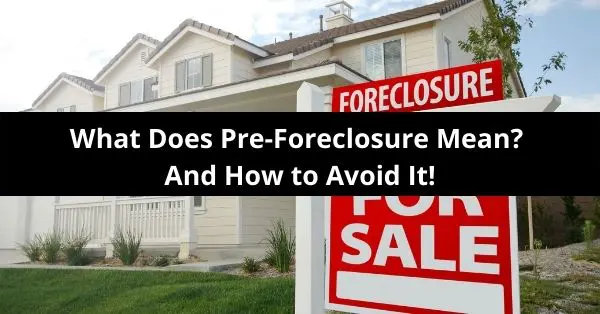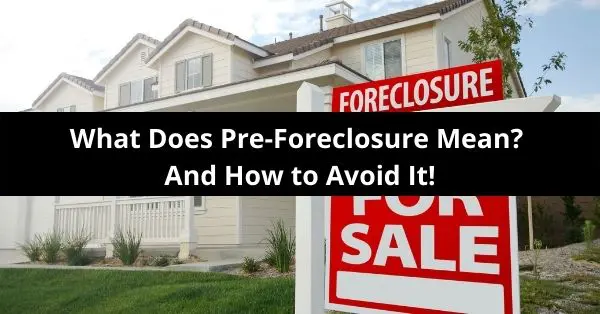
What Does Pre-Foreclosure Mean?
Pre-foreclosure means that a homeowner has fallen behind three or more mortgage payments and the bank has issued a notice of default that begins the legal process of foreclosure. People just like you can find themselves in pre-foreclosure for several reasons, many times through no fault of your own.
Job loss, a serious illness or injury, unexpected medical expenses – there are many life circumstances that could understandably lead you to fall behind on your bills. But pre-foreclosure is not as dire as it sounds because you’re not actually in foreclosure yet. There are also a few differences that are important for you to know.
The Difference Between Pre-foreclosure and Foreclosure
The difference between pre-foreclosure and foreclosure is that foreclosure signifies that the bank has taken back the property to sell to recoup the money they are owed for it. Pre-foreclosure simply means that the band has started the process and has not foreclosed on your home yet. This is good news as you still have time to avoid a full foreclosure.
Foreclosing on a property is an expensive and time consuming process for a lender. If they can avoid having to go through the process of foreclosing on your home, they likely will. So if you find yourself in pre-foreclosure, don’t panic! You have several options that can fix the situation, and we’re here to help.
How to Avoid Pre-foreclosure
Being in pre-foreclosure means that you have good options to keep your house or find a positive way to move on. You can even walk away with money in hand and start over. This can be an opportunity to set yourself on a whole new path!
- Work out a repayment plan
Only missed a few payments? Your lender may allow you to make up those payments over several months. The current mortgage bill will need to be paid at the same time so extra cash is needed to make this scenario work.
- Enter into a forbearance agreement
Will you be able to get back on track with mortgage payments in a few months? Ask your lender about forbearance. They could agree to reduced payments or no payments for several months. The payments may be tacked on the end of the loan, or a repayment plan might be created to make up for the missed payments once the forbearance term has ended.
- Arrange a short sale
A short sale means selling your house for less than what is owed on it. Your lender needs to agree to a short sale before it can happen. Banks sometimes are willing to do this to save themselves the time and money it costs to go through the foreclosure process. If your lender agrees, find a real estate agent who has experience with short sales. You want an agent who has been through the process and knows what they are doing. Ask them how many short sales they have done in the past, and if they have never worked on one, find another agent who has.
- Sell your house for cash
Selling your house for cash is quick, easy and stress-free. You can avoid the headache of dealing with the bank while avoiding going into foreclosure. An added benefit in selling for cash is that you can skip on paying for repairs, realtor fees and closing costs. You can walk away and start fresh.
Being in pre-foreclosure means you still have several options and good solutions and you can avoid losing everything so don’t panic, it is not the end of the world.


